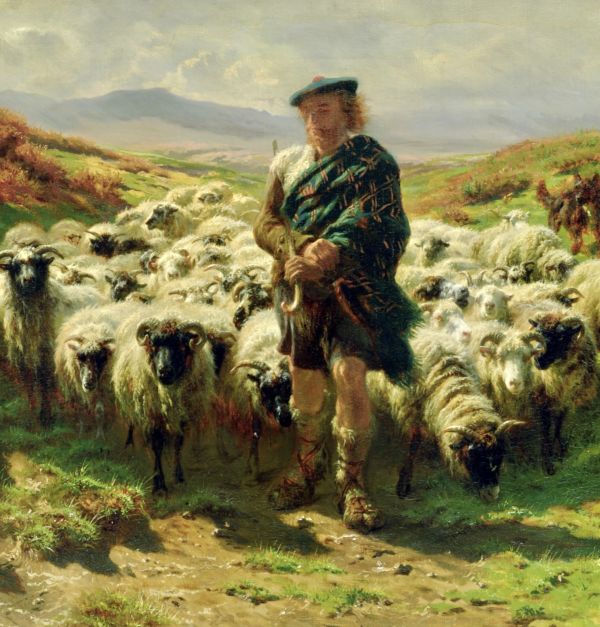Jesus, the true Shepherd, arguing with the Jewish leaders under Solomon's porch makes them aware that they are not his sheep. These, in fact, listen to his voice and follow him. The authorities, on the other hand, do not believe even the evidence of his works.
Francis was a tender-hearted but firm shepherd on the path to follow in the footsteps of Christ.
In this sense various passages from the Sources illuminate his itinerary. In his Admonitions, the Poverello writes:
"Let us look closely, brothers and sisters, at the good shepherd who, in order to save his sheep, endured the passion of the cross.
The Lord's sheep followed him in tribulation and persecution, in ignominy and hunger, in infirmity and temptation, and in other similar things; and they received from the Lord eternal life in return" (FF 155).
Again, St Bonaventure's Major Legend informs us:
"One day, being on his way near Siena, he met a large flock of grazing sheep. According to his custom, he greeted them benevolently, and they, ceasing to graze, all ran to him at once, lifting their snouts and gazing up at him.
They made him such a feast that the brothers and the shepherds were astonished, seeing the lambs and even the rams prancing around him in such a marvellous way" (FF 1147).
And finding St Francis together with St Dominic in Rome, in the house of the Cardinal of Ostia, before the latter spoke thus of his brothers, with great humility:
"Lord, my brothers for this very reason have been called Minors, so that they may not presume to become majors.
The very name teaches them to remain lowly and to follow in the footsteps of Christ's humility, so that in the end they may be raised above others in the presence of the saints.
If you want them to bear fruit in the Church,' he continued, 'keep them and preserve them in the state of their vocation, and bring them down even against their will.
For this, Father, I beseech you: that they may not be all the more haughty as they are poorer and may not show themselves arrogant towards others, do not in any way allow them to obtain offices' (FF 732).
Yes, Francis prayed to his heavenly Father to keep his sheep in humility and not to be torn from his hand.
The Poor Man of Assisi carried within himself all the traits of the authentic shepherd.
«My sheep hear my voice and I know them and they follow me» (Jn 10:27)
4th Sunday in Easter C (Jn 10:27-30)












